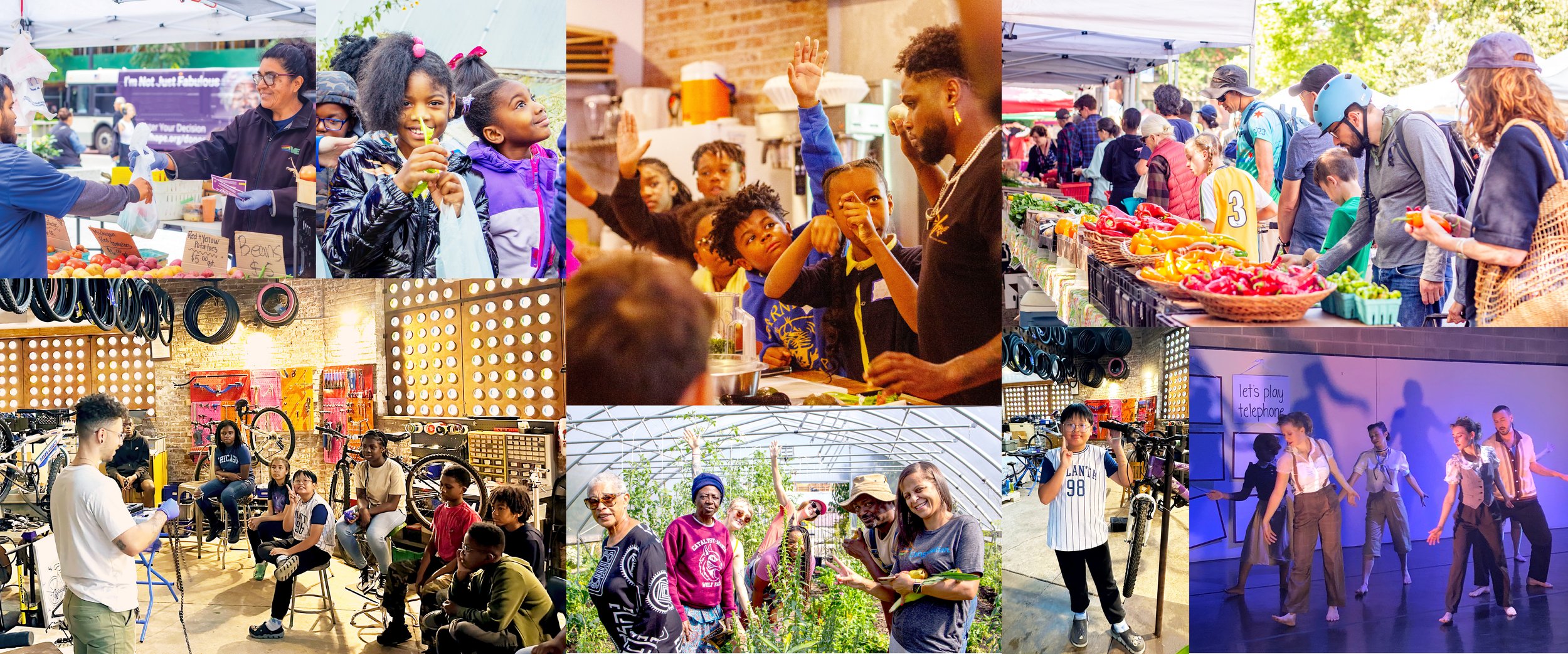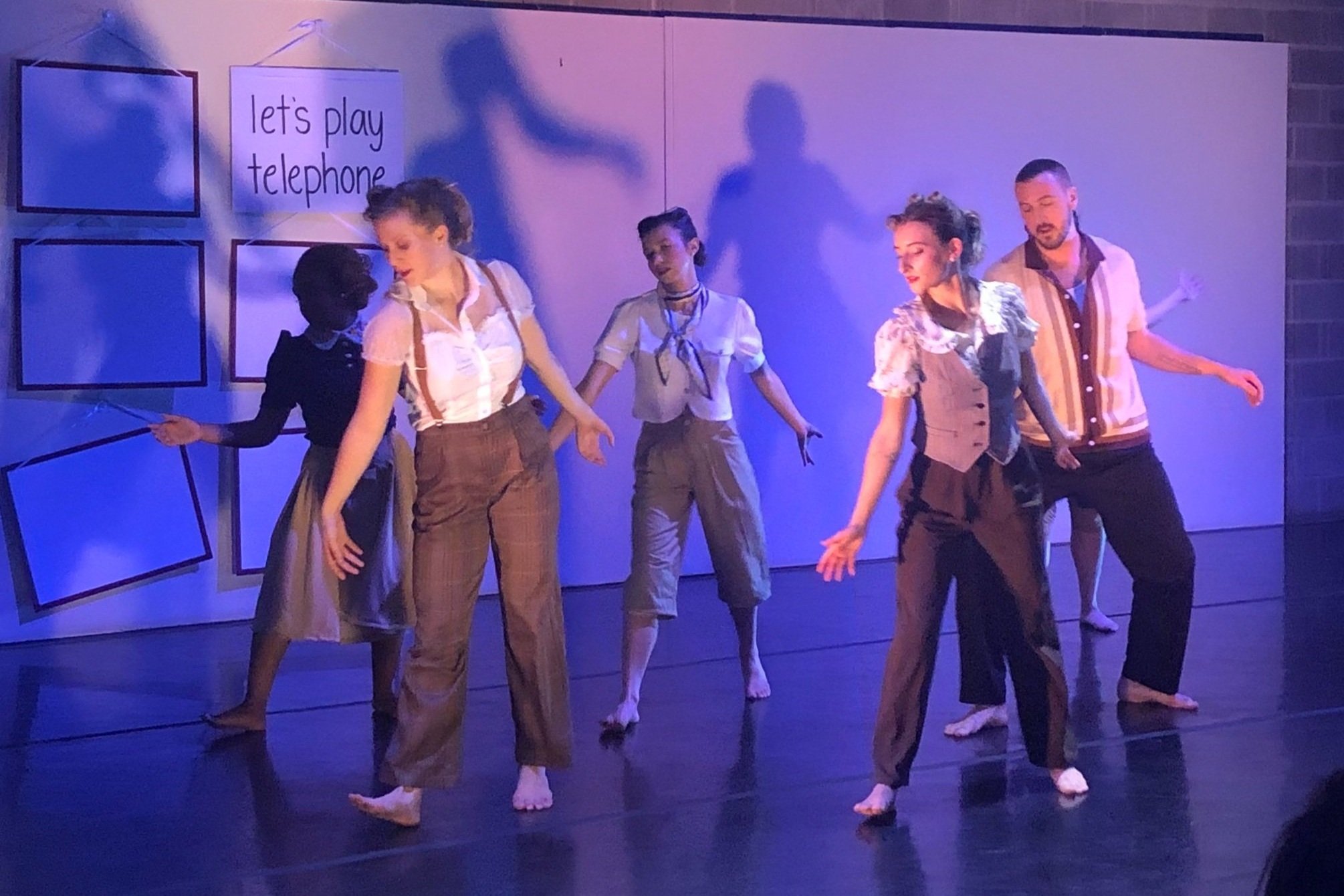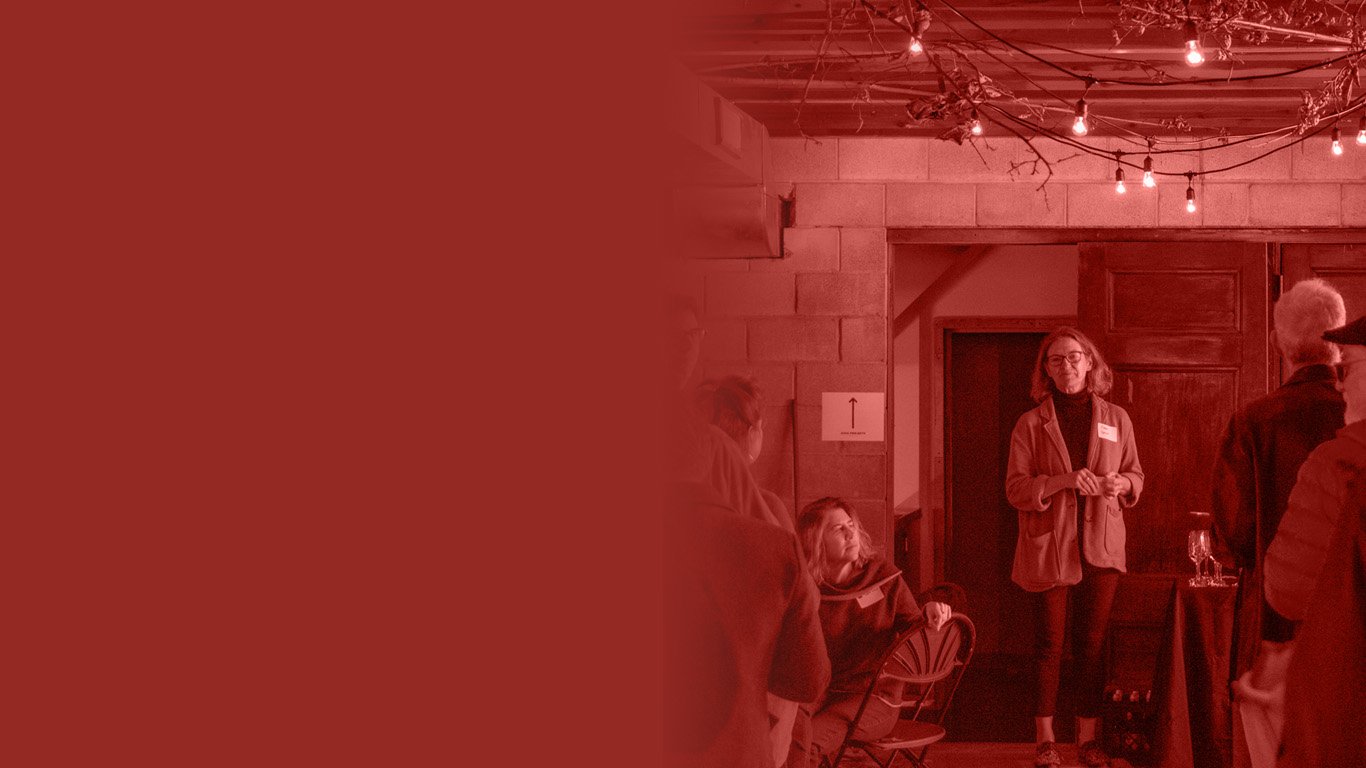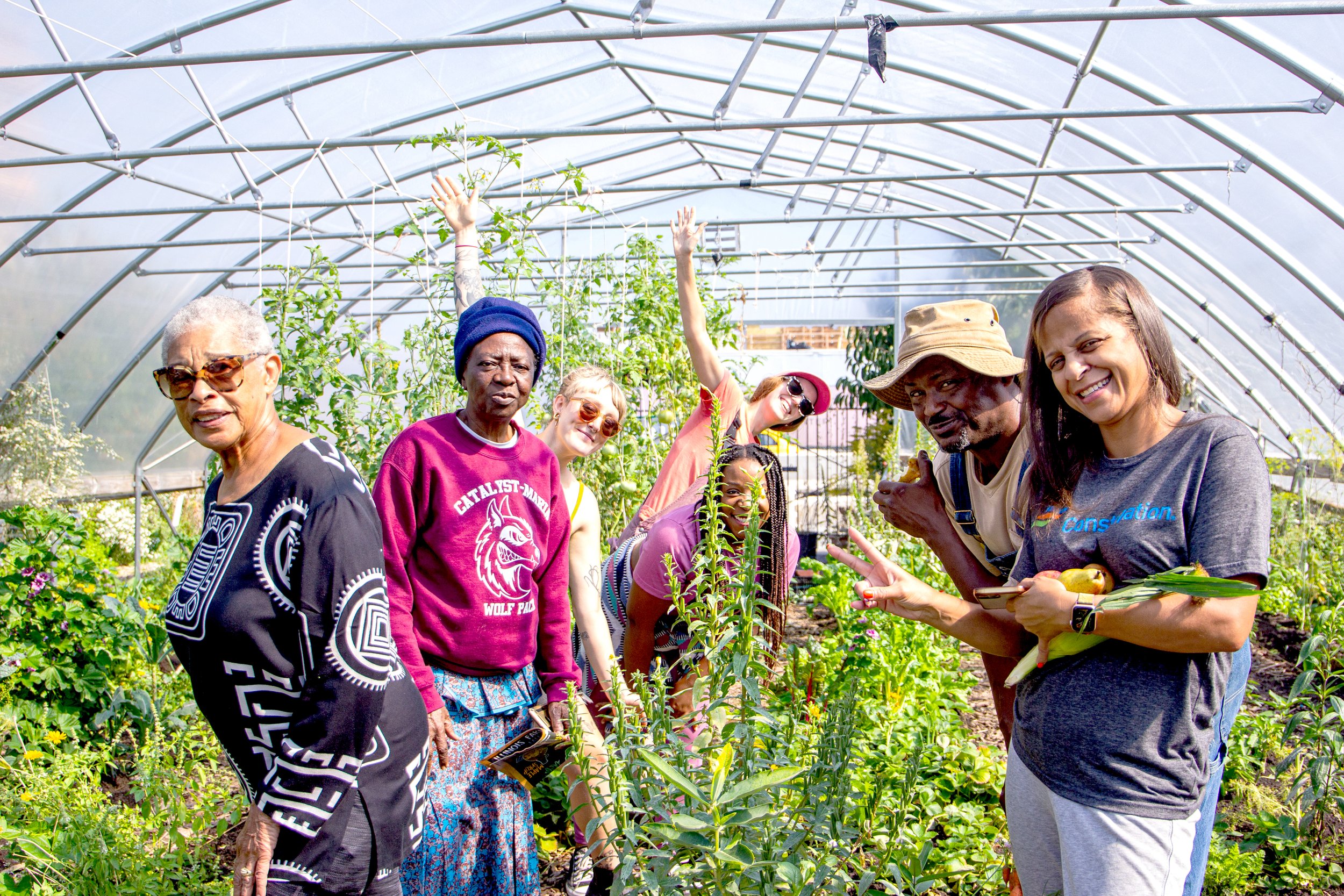
Read full stories
↓
Blackstone Bicycle Works: Youth gain confidence and independence
“The Blackstone Bicycle Works program is incredible,” said Rio, an 11-year-old youth who participated in the summer Earn-A-Bike program. Rio and 26 youths from Chicago’s south side participated in Blackstone Bicycle Works’ (BBW) summer program, where they learned bike mechanics and bike safety, and earned a free bike.
The summer program was rolled out in June, just two weeks after Aren Chynoweth and Cody Ciminillo took on the roles of program managers.
“We had to hit the ground running, quickly developing a curriculum, programming, and salvaging usable bikes. Yet, it all felt seamless working with the youth and learning together,” said Aren.
“I love coaches Cody and Aren. [With their support,] I could repair and earn my customized bike, along with a helmet, toolkit, and a lock,” said Rio, a local Woodlawn youth.
Sky Vân, Rio’s mother, said, “The BBW program is giving more than I expected. The first thing we aimed for was to earn a free bike. But, actually, the camp helped Rio become more confident riding his bike. [...] The greatest thing is that he no longer needs me to walk to school with him since he can ride his bike to school.” The only student in his school to do so, both Rio and his mother attribute this newfound independence to his participation in the Blackstone Bicycle Works program.
Rio’s enthusiasm for cycling has inspired his mother to get involved in BBW. She is a member of the BBW Parent and Alumni Advisory Committee, a committee that provides feedback on the program, and also participated in the Family-Earn-A-Bike program, an intergenerational activity encouraging parents and youths to ride bikes together.
Rio has also encouraged his best friend, K’Michelle, to join BBW’s program. The two friends are now participating in BBW’s after-school bike program together this fall.
“I can see him growing with practical skills from this program. I highly appreciate what your team has been doing for the community,” said Rio’s mother, adding that the program has also helped Rio to show empathy towards others, “which is of paramount importance in shaping his personality traits.”
Currently, Blackstone Bicycle Works offers After-School programming every Monday through Thursday from 4:00 - 6:00 PM, free of charge.
-

Record Breaking: 61st Street Farmers Market expands community’s food access
On September 9, the 61st Street Farmers Market marked the highest Link sales, Link transactions, and Link Match redemption in its 16-year history. That same month, the Market also saw record breaking attendance levels, with over 2,200 customers in one day.
-

Link Match at grocery stores: Making fresh food affordable
In March, Experimental Station launched Link Match at One Stop Foods, a local institution that has served the North Kenwood/Bronzeville neighborhood for over 53 years.
-

Arts and Cultural Events
Since the foundation and throughout 2023, Experimental Station has been a critical asset for cultural practitioners on the South Side, providing free and discounted space for artists, videographers, choreographers, musicians, theater actors, and community groups to rehearse, perform, and meet.

Note from the Executive Director
Dear friend,
When asked what Experimental Station does, we say, “We build independent cultural infrastructure that responds to local needs.” As that may sound abstract to some, we offer below a breakdown of what we mean:
We = a small but mighty team of talented, creative, hard-working staff and volunteers
Build = create and support programs, initiatives, projects, and other organizations with good ideas and gumption behind them
Independent = adopting a DIY approach that allows for new and different ways of thinking about, engaging with, and solving problems
Cultural = embracing a broad range of practices including the arts, architecture and design, food and agriculture, cycling, alternative education, alternative media...
Infrastructure = physical and organizational structures that support cultural producers and improve the quality of life in our community and beyond.
We invite you to learn more in these pages about the ways Experimental Station builds independent cultural infrastructure. As you do, we hope you will be inspired to support our work by making a tax-deductible year-end gift!
Sincerely,
Connie Spreen
-

Growing City Farmers Markets
Since 2012, Experimental Station has partnered with the City of Chicago to address the lack of access to healthy food on Chicago’s south and west sides. Labeled ‘food deserts,’ these areas of the city have long struggled to attract grocery store investors. One remedy to this problem was for the City to create farmers markets in food-insecure neighborhoods.
Whether through a supermarket or a farmers market, creating a healthy food oasis in a food desert requires long-term investment and cultivation.
For more than a decade, the Experimental Station team has worked to cultivate and grow farmers markets in the Austin, Bronzeville, Garfield Park, West Humboldt Park, and Englewood neighborhoods. Besides accepting Link and offering Link Match at these markets, year after year, the team has done extensive outreach to build relationships between community members and their market.
This year, the Austin Town Hall Farmers Market has especially grown, reaching record vendor participation. With fresh produce and market management now provided by Forty Acres, and with the participation of small local businesses, the Austin market grew to 15 vendors.
Leading the Experimental Station team, Program Manager Raja Baptiste commented, “Farmers markets play an essential role in the development of healthy communities. Providing a space for local business and healthy food options, Austin Town Hall Farmers Market demonstrated their ability to connect with farmers, vendors, and the community this season.”
-

Open Shop builds a safe bike culture
Blackstone Bicycle Works hosts Open Shops for the community five days a week, ensuring the program remains a community asset. Between August and October, 186 community members have come to Open Shop to learn to repair and refurbish their bikes.
Community members can drop in with their bicycles and use the tools and expertise offered at the workshop. “We want to empower community members with the knowledge, mechanical skills, and tools to repair their own bikes,” said Cody Ciminillo, Blackstone Bicycle Works’ Program Manager.
Leslye Long, a local community member, has been making use of Open Shop and tools to rebuild her bike for the past several weeks, transforming her rusted, unusable bicycle frame into an eye-catching piece of art. “Having the opportunity to learn the intricacies of bike repair for free with amazingly brilliant individuals is a godsend, seriously,” said Leslye about BBW’s Open Shop, “I loved it and will do it again!”
“Seeing a community member develop an idea into something tangible with the assistance we’re providing is a great example of how an open shop connects with and is of service to our neighbors here in Woodlawn," said Aren.
Blackstone Bicycle Works’ mission to build a bicycle community among youth, their families, and the community extends beyond the walls of the shop. “We are trying to build a safer and active bike culture on Chicago’s south side, where we provide free bicycles to youth and families, teach them to make their own repairs, and create a community of riders that can enjoy the freedom of exploring the outdoors," said Aren.
Every Saturday, Aren and Cody lead community bike rides. The routes vary in length and difficulty to meet the skill levels of participants. “Everyone is welcome, young or old, and we have various rides exploring different parts of the city–safe rides to great destinations,” said Cody.
-

Building community partnership through gardening
For 10 years, the hoop house at Jackson Park Terrace (JPT), maintained by the Experimental Station, has been a source of gardening knowledge and fresh vegetables for the residents.
Every Harvest Saturday, the community garden provides freshly harvested vegetables to around 20 residents of the JPT community housing complex in Chicago's Woodlawn neighborhood. This spring and summer, the Experimental Station’s Head Gardener, Lawrence Riley, grew and harvested tomatoes, eggplants, chives, carrots, collards, beets, peppers, and all varieties of herbs in the main garden to distribute to the residents.
This year, Lawrence also helped eight residents grow their own vegetables on individual raised beds.
Among them was Joy Joshua, a resident of JPT. With guidance from Lawrence, the first-year gardener, Joy grew corn, beans, cucumbers, peppers, carrots, cabbage, and tomatoes. Her spring and summer crops have been producing so well that she “almost never” had to shop for vegetables from grocery stores.
“I haven't purchased tomatoes because my tomato plants have been plentiful. And the beans are so good, still producing,” says Joy.
With all the fresh produce Joy gets from her plot and through the Saturday distributions, she has been cooking more than ever and feels healthier. She is now spreading the knowledge to her family, especially her mother.
As part of the mission to promote a healthy eating culture, Experimental Station’s 61st Street Farmers Market offers pop-up events at the hoop house. There, local chefs share their cooking skills using fresh produce from the garden and pass out samples and recipes to the participating residents.
Beyond providing opportunities for residents to learn new recipes or taste new food, the pop-ups are also an opportunity for the JPT community members to connect with each other.
Joyce Butler, a JPT resident who has been gardening at the Hoop House since the program’s start, sees that the past 10 years of sustaining and cultivating the Hoop House garden and growing participation have been essential in keeping community members healthy and connected.
Building a healthy food culture
Every spring and fall, students of Andrew Carnegie Elementary School fill up the Experimental Station’s kitchen with excitement and curiosity as they gather for their 4-week cooking class.
The students eagerly raise their hands to answer questions from the chef instructor, Chef Sebastian White. Chef Sebastian asks the children if they have tasted basil before, tried zucchini, or liked garlic.
While excited murmurs continue, the children begin to concentrate on cutting the vegetables that Chef Sebastian distributed to their cutting boards. He leads them through the steps of preparing a dish. Then, they taste their dishes and explore the flavors they helped to combine.
This class is part of the 61st Street Farmers Market’s food education programming delivered in partnership with Andrew Carnegie Elementary School since 2013. This sequential program provides hands-on instruction to 2nd, 3rd, and 4th graders covering healthy eating concepts, tastings, gardening, and kitchen skills. At the request of teachers and students alike, the cooking class has expanded to include in-school classes for 5th graders this fall. These classes focus on utilizing specialty crops, vegetables, and fruits that are available in the Midwest.
Among all these learning opportunities, students’ favorite part of the program is to pick and taste different fruits and vegetables grown at the hoop house, a community garden of Jackson Park Terrace. Emily Cross, the Farmers Market Manager, has them taste sorrel, strawberries, peppers and herbs freshly picked from the garden.
With much excitement, the students exclaimed, “Where’s the sorrel!!?”, since sorrel is this class' favorite herb to taste in the hoop house."
Others said "I’ve never tried cilantro before," "That [sage] smells so good,” "My grandma puts that [thyme] on spaghetti,”
Overhearing the students’ comments and exclamations, Ms. Joyce Butler, Jackson Park Terrace resident and gardener at the hoop house, confirms, “Trust me, they love it. I can hear it [in their voices].”
Business Incubation Residents
Since 2006, Experimental Station has provided discounted long-term rental space and resources to mission-aligned local businesses and journalism institutions.
-
Invisible Institute
The Invisible Institute is a Pulitzer Prize-winning journalism production company. They work to enhance the capacity of citizens to hold public institutions accountable.
The Invisible Institute is a former program of Experimental Station.
-
South Side Weekly
The South Side Weekly is a nonprofit newsprint magazine dedicated to supporting cultural and civic engagement on the South Side, and to providing educational opportunities for developing journalists, writers, and artists. In 2022, South Side Weekly merged with the Hyde Park Herald, who are now sharing our space.
-
Build Coffee
Build Coffee is a coffee shop in the Experimental Station. Surrounded by community-driven nonprofits and civic journalism projects, Build is designed as a hub of great coffee and radical collaboration.
-
Civic Projects
Civic Projects, a woman and minority-owned firm, is a hybrid architecture practice in Chicago. Their work includes architecture as well as community and strategic planning, grant writing, and small-scale revitalization.
Grants, Individual Donors, and Foundation Support
For the full list of
November 2022 - October 2023

